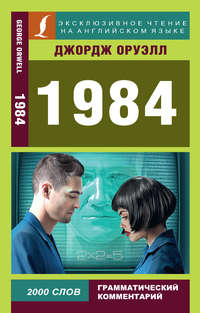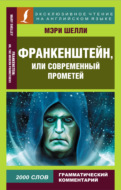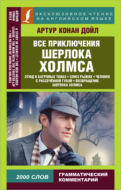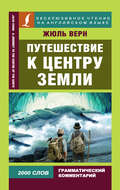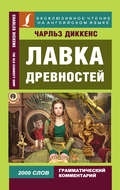Kitobni o'qish: «1984»
© George Orwell, 1949
© Adaptation. AST Publishers, the Estate of the late Sonia Brownell Orwell, 2019
© Дубиковская И.Г., адаптация, словарь, 2019
© «Издательство АСТ», 2019
Part One
Chapter 1
It was a bright cold day in April, and the clocks were striking thirteen. Winston Smith, his chin nuzzled into his breast in an effort to escape the vile wind, slipped quickly through the glass doors of Victory Mansions, though not quickly enough to prevent a swirl of dust from entering along with him.
The hallway smelt of boiled cabbage and old rag mats. At one end of it a coloured poster, too large for indoor display, had been tacked to the wall. It depicted simply an enormous face: the face of a man of about forty-five, with a heavy black moustache. Winston made for the stairs. It was no use trying the lift. The electric current was cut off during daylight hours. It was part of the economy drive in preparation for Hate Week. The flat was seven flights up, and Winston, who was thirty-nine and had a varicose ulcer above his right ankle, went slowly, resting several times on the way. On each landing, opposite the lift-shaft, the poster with the enormous face gazed from the wall. BIG BROTHER IS WATCHING YOU, ran the caption beneath it.
Inside the flat a voice was reading out a list of figures which had something to do with the production of pig-iron. The voice came from an oblong metal plaque which formed part of the surface of the wall. Winston turned a switch and the voice became quieter, though the words were still distinguishable. The telescreen could be dimmed, but there was no way of shutting it off completely. He moved over to the window. His figure was small, emphasized by the blue overalls which were the uniform of the party. His hair was very fair, his face naturally sanguine, his skin roughened by coarse soap and blunt razor blades and the cold of the winter that had just ended.
Outside, the world looked cold. The sun was shining and the sky was a harsh blue colour, but there seemed to be no colour in anything, except the posters that were plastered everywhere. The face with a moustache gazed down from every corner. Down at street level one of the posters, torn at one corner, flapped in the wind, alternately covering and uncovering the single word INGSOC. In the far distance a helicopter hovered between the roofs. It was the police patrol, looking into people’s windows. The patrols did not matter, however. Only the Thought Police mattered.
Behind Winston’s back the voice from the telescreen was still talking about pig-iron and the overfulfilment of the Ninth Three-Year Plan. The telescreen received and transmitted simultaneously. Any sound that Winston made, above the level of a very low whisper, would be picked up by it. Moreover, so long as he remained within the field of vision of it, he could be seen as well as heard. There was of course no way of knowing whether you were being watched at any given moment. How often the Thought Police plugged in on any individual wire was guesswork. It was even possible that they watched everybody all the time. But at any rate they could plug in your wire whenever they wanted to. You had to live in the assumption that every sound you made was heard, and, except in darkness, every movement scrutinized.
Winston kept his back turned to the telescreen. It was safer. A kilometre away the Ministry of Truth, his place of work, towered above the grimy landscape. This, he thought with distaste—this was London, chief city of Airstrip One, itself the third most populous of the provinces of Oceania. He tried to squeeze out some childhood memory that should tell him whether London had always been quite like this. Were there always these vistas of rotting nineteenth-century houses? And the bombed sites with heaps of rubble; and the places where the bombs had cleared a larger patch and there had sprung up sordid colonies of wooden shelters? But it was no use, he could not remember.
The Ministry of Truth—Minitrue1, in Newspeak2(Newspeak was the official language of Oceania)—was startlingly different from any other object in sight. It was an enormous pyramidal structure of glittering white concrete, soaring up, terrace after terrace, 300 metres into the air. From where Winston stood it was just possible to read, picked out on its white face, the three slogans of the Party:
WAR IS PEACE
FREEDOM IS SLAVERY
IGNORANCE IS STRENGTH
The Ministry of Truth contained three thousand rooms above ground level, and corresponding ramifications below. Scattered about London there were just three other buildings of similar appearance and size. So completely did they dwarf the surrounding architecture that from the roof of Victory Mansions you could see all four of them simultaneously. They were the homes of the four Ministries between which the entire apparatus of government was divided. The Ministry of Truth, which concerned itself with news, entertainment, education, and the fine arts. The Ministry of Peace, which concerned itself with war. The Ministry of Love, which maintained law and order. And the Ministry of Plenty, which was responsible for economic affairs. Their names, in Newspeak: Minitrue,Minipax3, Miniluv4, and Miniplenty5.
The Ministry of Love was the really frightening one. There were no windows in it at all. Winston had never been inside, nor within half a kilometre of it. It was a place impossible to enter except on official business, and then only by getting through a maze of barbed wire, steel doors, and hidden machine-gun nests. Even the streets leading up to its outer barriers were roamed by guards armed with truncheons.
Winston set his features into the expression of quiet optimism, which was advisable when facing the telescreen, and turned round. He crossed the room into the tiny kitchen. There, he took down from the shelf a bottle of colourless liquid with a plain white label marked VICTORY GIN. It gave off a sickly, oily smell. Winston poured out nearly a teacupful, prepared himself for a shock, and gulped it down like a dose of medicine.
Instantly his face turned scarlet and the water ran out of his eyes. The stuff was like acid. The next moment, however, the burning in his belly died down and the world began to look more cheerful. He took a cigarette from a crumpled packet marked VICTORY CIGARETTES, went back to the living-room and sat down at a small table to the left of the telescreen. From the table drawer he took out a penholder, a bottle of ink, and a thick blank book.
For some reason the telescreen in the living-room was in an unusual position. Instead of being placed, as was normal, in the end wall, where it could command the whole room, it was in the longer wall, opposite the window. To one side of it there was a shallow alcove in which Winston was now sitting. When the flats were built, it had probably been intended to hold bookshelves. Here he was able to remain outside the range of the telescreen. He could be heard, of course, but he could not be seen.
The book he had just taken out of the drawer was a peculiarly beautiful book. Its smooth creamy paper, a little yellowed by age, was of a kind that had not been manufactured for at least forty years past. He had seen it lying in the window of a junk-shop and had been stricken immediately by an overwhelming desire to possess it. Party members were not supposed to go into ordinary shops (“dealing on the free market”, it was called), but the rule was not strictly kept, because there were various things, such as shoelaces and razor blades, which it was impossible to get hold of in any other way. He bought the book for two dollars fifty. At the time he did not want it for any particular purpose. He had carried it guiltily home in his briefcase. Even with nothing written in it, it was a compromising possession.
The thing that he was about to do was to open a diary. This was not illegal (nothing was illegal, since there were no longer any laws), but if detected it probably would’ve been punished by death, or at least by twenty-five years in a forced-labour camp. Winston took the pen. It was an archaic instrument, seldom used even for signatures, and he had gotten one simply because of a feeling that the beautiful creamy paper deserved to be written on with a pen instead of being scratched with an ink-pencil. He was not used to writing by hand. Apart from very short notes, it was usual to dictate everything into the speak-write. He dipped the pen into the ink and then stopped for just a second. To mark the paper was the decisive act. In small clumsy letters he wrote:
April 4th, 1984.
He sat back. A sense of complete helplessness had descended upon him. To begin with, he did not know with any certainty that this was 1984. He was fairly sure that his age was thirty-nine, and he believed that he had been born in 1944 or 1945; but it was never possible nowadays to pin down any date within a year or two.
For whom was he writing this diary? For the future, for the unborn. His thought about the doubtful date on the page, and then about the Newspeak word DOUBLETHINK6. For the first time the magnitude of what he had undertaken came home to him7. How could you communicate with the future? It seemed impossible. Either the future would resemble the present, in which case it would not listen to him: or it would be different from it, and this would be meaningless.
For some time he sat gazing stupidly at the paper. The telescreen had changed over to military music. He seemed to have forgotten what it was that he had originally intended to say. For weeks he had been preparing for this moment, and it had never crossed his mind that anything would be needed except courage. The actual writing would be easy. All he had to do was to transfer the restless monologue that had been running inside his head for years to paper. At this moment, however, even the monologue had dried up.
Suddenly he began writing in sheer panic, only imperfectly aware of what he was setting down. His small handwriting straggled up and down the page, shedding first its capital letters and finally even its full stops:
April 4th, 1984. Last night to the flicks. All war films. One very good one of a ship full of refugees being bombed somewhere in the Mediterranean. Audience much amused by shots of a great huge fat man trying to swim away with a helicopter after him, first you saw him wallowing along in the water like a porpoise, then you saw him through the helicopters gunsights, then he was full of holes and the sea round him turned pink and he sank as suddenly as though the holes had let in the water, audience shouting with laughter when he sank. then you saw a lifeboat full of children with a helicopter hovering over it. there was a middle-aged woman might have been a jewess sitting up in the bow with a little boy about three years old in her arms. little boy screaming with fright and hiding his head between her breasts as if he was trying to burrow right into her and the woman putting her arms round him and comforting him although she was blue with fright herself, all the time covering him up as much as possible as if she thought her arms could keep the bullets off him. then the helicopter planted a 20 kilo bomb in among them terrific flash and the boat went all to matchwood. then there was a wonderful shot of a child’s arm going up up up right up into the air a helicopter with a camera in its nose must have followed it up and there was a lot of applause from the party seats but a woman down in the prole part of the house suddenly started kicking up a fuss and shouting they didnt oughter of showed it not in front of kids they didnt it aint right not in front of kids it aint until the police turned her turned her out i dont suppose anything happened to her nobody cares what the proles say typical prole reaction they never—
Winston stopped writing, partly because he was suffering from a cramp. He did not know what had made him pour out this stream of rubbish. But the curious thing was that while he was doing so a totally different memory had clarified itself in his mind. He almost wanted to write it down.
It had happened that morning at the Ministry, if anything so nebulous could be said to happen.
It was nearly eleven hundred, and in the Records Department, where Winston worked, they were dragging the chairs out of the cubicles and grouping them in the centre of the hall opposite the big telescreen, in preparation for the Two Minutes Hate. Winston was just taking his place in one of the middle rows when two people whom he knew by sight, but had never spoken to, came unexpectedly into the room. One of them was a girl whom he often passed in the corridors. He did not know her name, but he knew that she worked in the Fiction Department. She was a bold-looking girl, of about twenty-seven, with thick hair, a freckled face, and swift, athletic movements. A scarlet sash, emblem of the Junior Anti-Sex League, was wound several times round the waist of her overalls. Winston had disliked her from the very first moment of seeing her. He knew the reason. It was because of the atmosphere she managed to carry about with her. He disliked nearly all women, and especially the young and pretty ones. It was always the women, and above all the young ones, who were the most bigoted adherents of the Party, the swallowers of slogans, the amateur spies. But this particular girl gave him the impression of being more dangerous than most. Once when they passed in the corridor she gave him a quick sidelong glance which seemed to pierce right into him and for a moment had filled him with black terror. The idea had even crossed his mind that she might be an agent of the Thought Police. It was very unlikely, but still, he continued to feel a peculiar uneasiness whenever she was anywhere near him.
The other person was a man named O’Brien, a member of the Inner Party. He was a large, burly man with a thick neck and a coarse, humorous, brutal face. In spite of his formidable appearance he had a certain charm of manner. Winston had seen O’Brien perhaps a dozen times in almost as many years. He felt deeply drawn to him. It was because of a secretly held belief—or perhaps a hope—that O’Brien’s political orthodoxy was not perfect. Something in his face suggested it irresistibly. Winston had never made the smallest effort to verify this guess: indeed, there was no way of doing so. At this moment O’Brien glanced at his wrist-watch, saw that it was nearly eleven hundred, and evidently decided to stay in the Records Department until the Two Minutes Hate was over. He took a chair in the same row as Winston, a couple of places away. The girl with dark hair was sitting immediately behind.
The next moment a hideous, grinding speech, as of some monstrous machine running without oil, burst from the big telescreen at the end of the room. It was a noise that set one’s teeth on edge and bristled the hair at the back of one’s neck. The Hate had started.
As usual, the face of Emmanuel Goldstein, the Enemy of the People, had flashed on to the screen. There were hisses here and there among the audience. Goldstein was the renegade who once, long ago (how long ago, nobody quite remembered), had been one of the leading figures of the Party, almost on a level with Big Brother himself. He had engaged in counter-revolutionary activities, had been condemned to death, and had mysteriously escaped and disappeared. The programmes of the Two Minutes Hate varied from day to day, but there was none in which Goldstein was not the main figure.
Winston could never see the face of Goldstein without a painful mixture of emotions. It was a lean Jewish face—a clever face, and yet somehow inherently despicable. Goldstein was delivering his usual venomous attack on the Party—an attack so exaggerated and perverse that a child should have been able to see through it, and yet just plausible enough. He was abusing Big Brother, he was denouncing the dictatorship of the Party, he was demanding the immediate conclusion of peace with Eurasia, he was advocating freedom of speech, freedom of the Press, freedom of assembly, freedom of thought. Behind his head on the telescreen marched the endless columns of the Eurasian army—row after row of solid-looking men with expressionless faces.
In the first thirty seconds, uncontrollable exclamations of rage started breaking out from half the people in the room. The face on the screen, and the terrifying power of the Eurasian army behind it, were too much. What was strange was that although Goldstein was hated and despised by everybody, his influence never seemed to grow less. Always there were fresh dupes waiting to be seduced by him. A day never passed when his spies and saboteurs were not unmasked by the Thought Police. He was the commander of a vast shadowy army. The Brotherhood, its name was supposed to be. There were also whispered stories of a terrible book, filled with heresies, of which Goldstein was the author. People referred to it, if at all, simply as THE BOOK.
In its second minute the Hate rose to a frenzy. People were leaping up and down in their places and shouting at the tops of their voices in an effort to drown the maddening voice that came from the screen. The dark-haired girl behind Winston had begun crying out “Swine! Swine! Swine!”. In a lucid moment Winston found that he was shouting with the others. The horrible thing about the Two Minutes Hate was not that one was obliged to act a part, but, on the contrary, that it was impossible to avoid joining in. That rage that one felt was an abstract, undirected emotion which could be switched from one object to another. Thus, at one moment Winston’s hatred was not turned against Goldstein at all, but, on the contrary, against Big Brother, the Party, and the Thought Police. Then, suddenly, Winston succeeded in transferring his hatred from the face on the screen to the dark-haired girl behind him. Vivid, beautiful hallucinations flashed through his mind. He would flog her to death with a rubber truncheon. He would tie her naked to a stake and shoot her full of arrows. He would ravish her and cut her throat at the moment of climax. Moreover, he realized WHY he hated her. He hated her because she was young and pretty and sexless, because he wanted to go to bed with her and would never do so, because round her waist was the scarlet sash, an aggressive symbol of chastity.
The Hate rose to its climax. The voice of Goldstein had become an actual sheep’s bleat, and for an instant the face changed into that of a sheep. Then it melted into the face of Big Brother, full of power and mysterious calm, and so vast that it almost filled up the screen. Nobody heard what Big Brother was saying. It was merely a few words of encouragement. Then the face of Big Brother faded away again, and instead the three slogans of the Party appeared in bold capitals:
WAR IS PEACE
FREEDOM IS SLAVERY
IGNORANCE IS STRENGTH
The face of Big Brother seemed to persist for several seconds on the screen, as though the impact that it had made on everyone’s eyeballs was too vivid to wear off immediately. The entire group of people broke into a deep, slow, rhythmical chant of “B-B!…B-B!”—over and over again, very slowly, with a long pause between the first “B” and the second. Winston chanted with the rest: it was impossible to do otherwise. But there was a space of a couple of seconds during which the expression of his eyes might conceivably have betrayed him. And it was exactly at this moment that the significant thing happened—if, indeed, it did happen.
Momentarily he caught O’Brien’s eye. O’Brien had stood up. He had taken off his spectacles and was in the act of resettling them on his nose with his characteristic gesture. But there was a fraction of a second when their eyes met, and for as long as it took to happen Winston knew—yes, he KNEW!—that O’Brien was thinking the same thing as himself. It was as though their two minds had opened and the thoughts were flowing from one into the other through their eyes. “I am with you,” O’Brien seemed to be saying to him. “I know precisely what you are feeling. I am on your side!” And then it was gone, and O’Brien’s face was as inscrutable as everybody else’s.
That was all, and he was already uncertain whether it had happened. Such incidents never had any sequel. All that they did was to keep alive in him the belief, or hope, that others besides himself were the enemies of the Party. Perhaps the rumours were true after all—perhaps the Brotherhood really existed! It was impossible to be sure that the Brotherhood was not simply a myth. Some days he believed in it, some days not. There was no evidence. It was all guesswork: very likely he had imagined everything. He had gone back to his cubicle without looking at O’Brien again. The idea of following up their momentary contact hardly crossed his mind. It would have been inconceivably dangerous even if he had known how to set about doing it. For a second, two seconds, they had exchanged an equivocal glance, and that was the end of the story. But even that was a memorable event, in the locked loneliness in which one had to live.
Winston roused himself and sat up straighter. He let out a belch. The gin was rising from his stomach.
His eyes re-focused on the page. He discovered that while he sat helplessly musing he had also been writing, as though by automatic action. And it was no longer the same cramped, awkward handwriting as before. His pen had slid voluptuously over the smooth paper, printing in large neat capitals—DOWN WITH BIG BROTHER DOWN WITH BIG BROTHER DOWN WITH BIG BROTHER DOWN WITH BIG BROTHER DOWN WITH BIG BROTHER over and over again, filling half a page.
He could not help feeling a twinge of panic. It was absurd, since the writing of those particular words was not more dangerous than the initial act of opening the diary, but for a moment he was tempted to tear out the spoiled pages and abandon the enterprise altogether.
He did not do so, however, because he knew that it was useless. Whether he wrote DOWN WITH BIG BROTHER, or whether he refrained from writing it, made no difference. Whether he went on with the diary, or whether he did not go on with it, made no difference. The Thought Police would get him just the same. He had committed—would still have committed, even if he had never set pen to paper—the essential crime that contained all others in itself.Thoughtcrime8, they called it. Thoughtcrime was not a thing that could be concealed for ever. You might dodge successfully for a while, even for years, but sooner or later they were bound to get you.
It was always at night—the arrests invariably happened at night. The sudden jerk out of sleep, the rough hand shaking your shoulder, the lights glaring in your eyes, the ring of hard faces round the bed. In the vast majority of cases there was no trial, no report of the arrest. People simply disappeared, always during the night. Your name was removed from the registers, every record of everything you had ever done was wiped out, your one-time existence was denied and then forgotten. You were abolished, annihilated: VAPORIZED was the usual word.
For a moment he was seized by a kind of hysteria. He began writing in a hurried untidy scrawl:
theyll shoot me i don’t care theyll shoot me in the back of the neck i dont care down with big brother they always shoot you in the back of the neck i dont care down with big brother—
He sat back in his chair, slightly ashamed of himself, and laid down the pen. The next moment he started violently. There was a knocking at the door.
Already! He sat as still as a mouse, in the futile hope that whoever it was might go away after a single attempt. But no, the knocking was repeated. The worst thing of all would be to delay. His heart was thumping like a drum, but his face, from long habit, was probably expressionless. He got up and moved heavily towards the door.
Bepul matn qismi tugad.
